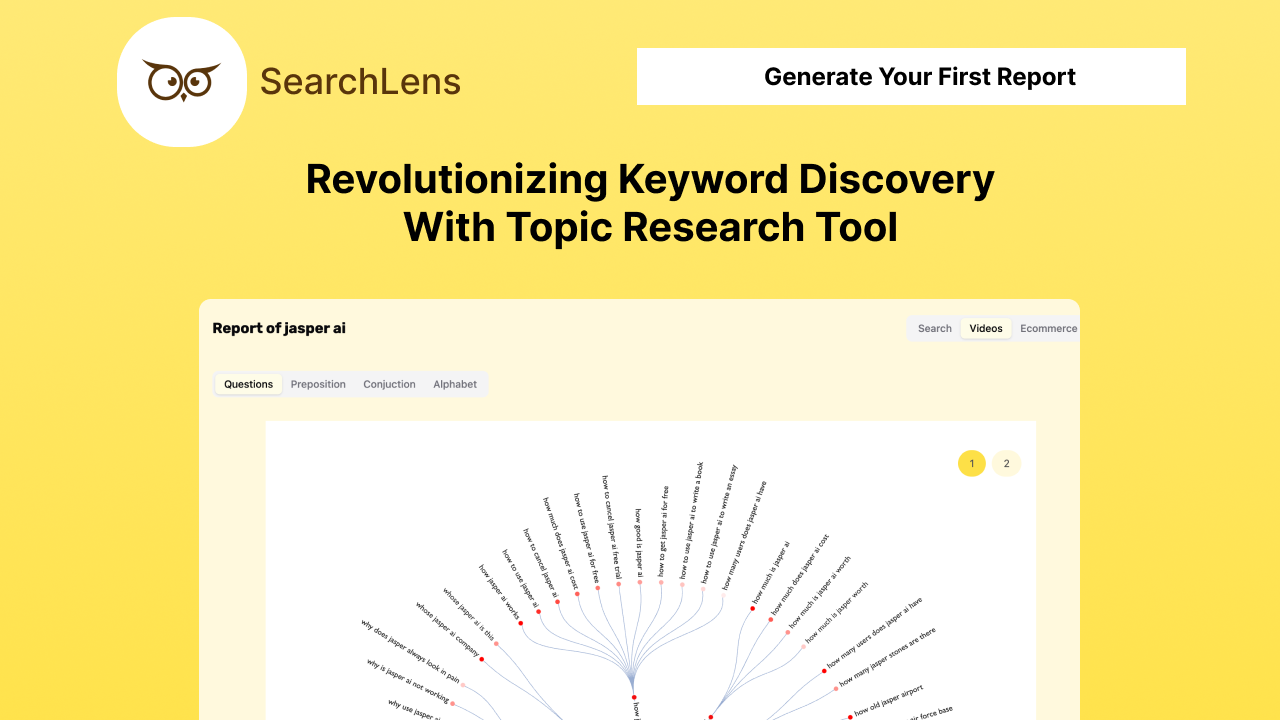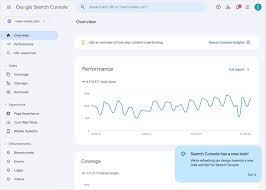
How to Use Search Insights for Hyper-Personalized Marketing Campaigns
Transforming Search Data into Tailored Customer Experiences
By Shishir
Published on
13 minutes
Table of Contents
In the age of digital transformation, personalization is no longer just a buzzword; it’s a necessity. Consumers expect brands to understand their needs, preferences, and behaviors—and deliver tailored experiences accordingly. One of the most powerful tools to achieve this is search insights. These insights, derived from analyzing search behavior, can help businesses create hyper-personalized marketing campaigns that resonate with their audience and drive results.
This blog explores how businesses can harness search insights for hyper-personalized marketing, the benefits of doing so, and how tools like Searchlens make the process seamless.
What Are Search Insights?
Search insights refer to the data collected from analyzing search queries, trends, and behaviors. This data provides a window into what users are looking for, how they search, and why they search. By interpreting these insights, businesses can:
- Understand customer preferences.
- Predict customer intent.
- Identify emerging trends.
When applied to marketing, search insights enable businesses to deliver personalized content, offers, and messaging that align with the unique needs of their audience.

Why Personalization Matters in Marketing
Personalized marketing is more than just addressing a customer by their name in an email. It’s about tailoring every interaction to reflect the customer’s preferences, behavior, and intent. Here’s why it’s crucial:
-
Enhanced Customer Experience
Personalized campaigns make customers feel valued and understood, leading to higher satisfaction and loyalty.
-
Improved Engagement Rates
Content that speaks directly to the audience’s needs and interests is more likely to capture their attention and prompt action.
-
Higher Conversion Rates
Customers are more likely to purchase when they see products or offers that align with their needs.
-
Competitive Advantage
In a crowded market, personalization helps businesses stand out by delivering unique and relevant experiences.
How Search Insights Drive Hyper-Personalization
1. Identifying Audience Segments
Search insights can reveal patterns in behavior and preferences, allowing businesses to segment their audience based on factors like:
- Search intent (informational, transactional, navigational).
- Demographics (age, location, interests).
- Keywords used in queries.

For example, a fashion retailer might discover that one segment frequently searches for “affordable summer dresses” while another looks for “luxury evening wear.” These insights can guide personalized messaging for each segment.
2. Predicting Customer Intent
By analyzing the language and context of search queries, businesses can infer what a customer is looking for and their stage in the buying journey:
- A query like “What is marketing automation?” indicates an informational intent.
- A query like “Buy marketing automation software” suggests transactional intent.
Searchlens simplifies this process by providing actionable insights into customer intent, enabling businesses to craft targeted campaigns.
3. Creating Tailored Content
Search insights can inform content strategies by revealing what topics, questions, or keywords resonate with your audience. Businesses can:
- Develop blogs or videos addressing common queries.
- Create product pages optimized for high-intent keywords.
- Use trending topics to engage their audience in real-time.
For example, if search data shows a spike in queries about “how to work remotely effectively,” a SaaS company offering collaboration tools could create a guide on the topic.
4. Personalizing Ad Campaigns
Search insights can guide pay-per-click (PPC) and social media advertising by:
- Identifying high-performing keywords for ad targeting.
- Customizing ad copy to align with user intent.
- Delivering ads based on location, device, or behavior.

A travel company, for instance, might target ads for “budget-friendly vacations” to users searching for affordable travel options, while showcasing luxury packages to those searching for premium experiences.
5. Optimizing Email Campaigns
Emails remain a cornerstone of personalized marketing. Search insights can:
- Help craft subject lines and content that reflect user intent.
- Segment audiences for more relevant email offers.
- Drive engagement by addressing trending topics or seasonal interests.
For example, if users frequently search for “back-to-school deals,” retailers can tailor email campaigns to highlight relevant offers during that period.

The Role of Searchlens in Hyper-Personalization
Searchlens is a powerful tool designed to help businesses unlock the potential of search insights. Here’s how it simplifies hyper-personalized marketing:
- Keyword Discovery: Identify the most relevant and impactful keywords for your campaigns.
- Search Intent Analysis: Understand what your audience is searching for and why.
- Trend Tracking: Stay ahead of market changes by spotting emerging topics and behaviors.
- Actionable Insights: Get clear, data-driven recommendations to guide your marketing strategy.

For example, a fitness app could use Searchlens to uncover that “beginner workout plans” is a popular search term. Armed with this insight, they can create targeted ads, blog content, and app features to cater to this audience segment.
Steps to Build Hyper-Personalized Campaigns Using Search Insights
Step 1: Analyze Search Behavior
Start by gathering search data related to your industry, products, or services. Use tools like Searchlens to:
- Identify high-traffic keywords.
- Understand search trends.
- Classify queries by intent.
Step 2: Segment Your Audience
Divide your audience into segments based on their search behavior. Consider factors like demographics, location, and intent to create targeted groups.

Step 3: Craft Personalized Messaging
Use the insights from your analysis to create tailored messaging for each segment. Ensure that your content, ads, and offers align with their preferences and needs.
Step 4: Implement Across Channels
Deploy your personalized campaigns across multiple channels, such as:
- Websites: Create dynamic landing pages optimized for specific keywords.
- Social Media: Share content that reflects trending topics.
- Email: Send targeted offers based on search intent.

Step 5: Monitor and Optimize
Track the performance of your campaigns and adjust based on results. Regularly update your strategies using fresh search insights from Searchlens.
Challenges in Hyper-Personalization and How to Overcome Them
1. Data Overload
With so much data available, it can be overwhelming to identify what’s relevant. Tools like Searchlens streamline the process by delivering curated insights.
2. Maintaining Relevance
Customer needs evolve, and so must your campaigns. Regularly monitor search trends to stay aligned with audience preferences.
3. Balancing Personalization and Privacy
Ensure your personalization efforts respect customer privacy by adhering to data protection regulations and obtaining consent where required.
Conclusion
Hyper-personalized marketing campaigns are no longer optional; they are a necessity in today’s competitive landscape. By leveraging search insights, businesses can deliver tailored experiences that resonate with their audience, boost engagement, and drive conversions.
Tools like Searchlens make it easier than ever to unlock the power of search insights. Whether you’re a small business or an established brand, these insights can transform the way you approach marketing, ensuring your campaigns are as effective as they are personalized.
Ready to take your marketing to the next level? Start exploring how Searchlens can help you create hyper-personalized campaigns today.